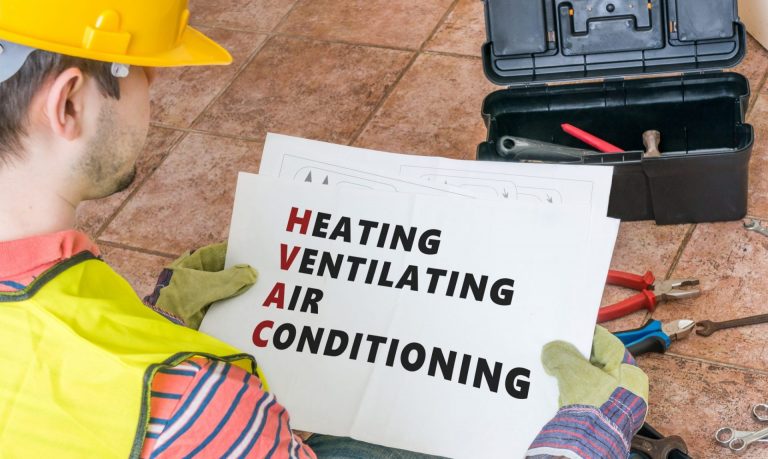HVAC stands for Heating, Ventilation, and Air Conditioning. The HVAC system is used to control indoor environmental conditions by distributing and regulating airflow and temperature. To effectively regulate the indoor environment of a structure, a HVAC system can provide both heating and cooling. Air conditioning is used during hot periods, while heating is used during cold periods.
- Indoor air quality: Air quality is the most immediate benefit of an HVAC system. Whether it’s heating or cooling, a properly working HVAC system can ensure that the air you breathe is clean and healthy.
- Cost savings:An HVAC system helps keep your monthly energy bills low by regulating the temperature in your home or business. While it might be tempting to turn up the heat or cool down your place in the summertime, you’ll find that you won’t need to do so with an HVAC unit around. The expenses will add up over time and save you cash in the long run.
- Comfort:An HVAC unit keeps you warm in wintertime or cool in summer without having to sacrifice comfort by running fans or opening windows. That means more consistent temperatures that leave you feeling cozy without being too hot or too cold.
- Reduce odors:HVAC units work by pumping in fresh, conditioned air. This can help reduce odors and airborne contaminants. With a properly functioning HVAC system and HVAC Software, you can remove bad odors instead of just masking them with fragrance.
In addition to reducing odor and airborne contaminants, HVAC systems have other benefits. A good-quality HVAC system will efficiently circulate air throughout your home. This can help improve your family’s health and keep your home comfortable at all times of the year. Using an HVAC system to regulate room temperature can reduce energy bills.
- Moisture consistency:The installation of central air conditioning helps to regulate the humidity levels in your house. You need HVAC software if you have multiple systems in your business. By keeping the temperature cool and constant, a whole-house air conditioner also helps to remove excess moisture from the air inside your home. An air conditioner can make it possible to use your air ducts for cooling rather than being used for heating. This means that your ductwork is more efficient and not using as much energy as it would in a heated space. The HVAC unit will also provide additional comfort when you want to keep the temperature cooler during the summertime.
- Safety: Properly functioning heating and cooling systems can help prevent accidents due to extreme temperatures. For example, this type of equipment can help ensure that the inside of a freezer does not get too warm or cause a natural gas leak. It can also help avoid burns caused by hot water or steam. Knowing how your system works and ensuring all safety features are functioning properly will help you reduce accidents in your workplace.
Key Takeaway
A home’s heating, ventilation, and air conditioning (HVAC) system are designed to ensure that the temperature inside is comfortable. While it may be tempting to open windows for fresh air during the warmer months and rely on blankets for warmth in cooler temperatures, these are not ideal for regulating the temperature. In fact, the Environmental Protection Agency (EPA) recommends keeping your thermostat no less than 68 degrees Fahrenheit when you’re at home and 65 degrees when you’re away during the winter. These are the temperatures that your HVAC system was designed to work best with.


Comments are closed.